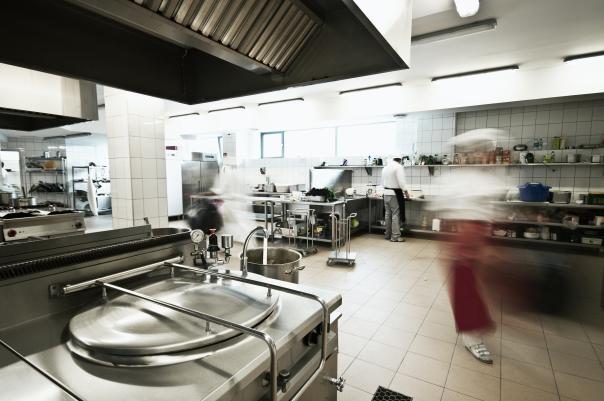
BRITA Professional recently launched its Rely Chain campaign, which identified the biggest challenges within the commercial kitchen supply chain and how education caterers, in particular, were overcoming them.
Disruptions or challenges within the supply chain can cause big problems for school caterers, especially against the backdrop of already squeezed budgets.
Our research has shown that rising costs, labour shortages and supply chain disruptions in the education sector have created a knock-on effect on other service elements, including the efficient operation of equipment.
Caterers have struggled to maintain equipment and have found that poor availability of replacement parts and equipment (56%) is the biggest challenge, with frequent breakdowns (37%) and stress on staff from unreliable equipment (32%) following closely behind. All of these also negatively impact the mental health of employees.
Managing kitchens within an education setting is much more than just overseeing the staff and placing food orders. All equipment, systems and services in a catering kitchen require routine maintenance.
Managing unavailable parts
When it comes to lack of availability of parts, sometimes this can’t be helped. And many suppliers came out of the pandemic facing their own cost and availability pressures. At BRITA we weren’t immune to these issues, but managed to pivot and become more agile on the manufacturing side of business, implementing cost savings and increasing sustainability by, for example, recycling filters.
Keeping sustainability top of the agenda
Caterers have also found sustainability initiatives harder to maintain due to supply chain disruptions. Those in the education sector have found minimising electrical consumption (59%), investing in energy-efficient, reliable equipment (43%) and working with suppliers (40%) the hardest to deal with. But there are a few steps they can take to try to ensure they’re bringing the focus back on sustainability, and this includes maintaining equipment.
Maintenance creates cost-savings
Unanticipated equipment breakdowns can close your business down in an instant, which will result in loss of revenue and unhappy customers. To prevent malfunctions always get your equipment inspected and serviced routinely.
We know tight budgets are one of the biggest challenges schools face and even just 1mm of scale on equipment, for example, can increase energy consumption by 7%, costing you more to heat water. Protecting machines by using filters can really help make long-term savings.
We recommend working with trusted suppliers and looking at what you can outsource to help ease workloads for teams. But it’s also important to train your managers about the manufacturing guidelines on equipment so they know how to take care of it. This not only reduces the chances of breakdown but contributes to preparing food safely.
It’s also a good idea to get extended warranties on appliances in case they need to be repaired or replaced quickly. You don’t want to find yourself unable to get your equipment fixed.
Efficiently running equipment will result in energy savings, fewer failures, a longer lifespan for kit, better food quality, and a safer work environment for your staff.
For more information on BRITA Professional’s Rely Chain campaign visit: https://www.brita.co.uk/rely-chain-education-insights